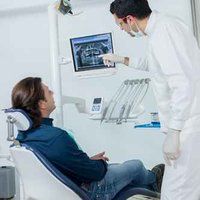High-Status Job Might Make Dentists Less Responsive to Depression Medications
A new study suggests people with high-stress careers might be poorer candidates for drug-based depression treatments.

It’s not easy to be a dentist. Years of schooling (often resulting in high student loan debt), the pressure of starting and maintaining your own practice, dealing with team member and patient demands, uncooperative or difficult patients, and the need for high levels of focus and concentration can all make dentistry an extremely stressful career choice. It’s the same in any high-level career (with perhaps a few minor differences), and it can lead to an unintended side effect: depression.
Unfortunately, many people don’t respond to standard treatment with medications for depression. Is it possible that a high-status job, such as dentistry, can contribute to this non-responsiveness? Researchers wanted to find out, and in a
they examined patients with high-status jobs and their responses to standard treatments using medications for depression.
A group of international researchers selected 654 working adults to participate in the study, classifying each participant’s work in terms of occupational level: high (such as dentistry), medium, and low. Most patients in the study were treated with serotonin reuptake inhibitors (SRIs), but other medications were also used along with psychotherapy. People with higher-status jobs were found to have taken fewer SRIs and received more psychotherapy than people in medium or lower status jobs.
The researchers found that 55.9% of study participants in higher occupational level jobs were more resistant to treatment. In contrast, 40.2% of medium-level and 44.3% of low-level workers remained resistant to treatment with medication.
As one of the researchers, Siegfried Kaspar, MD, noted
, “though these findings should be considered preliminarily, they indicate that high occupational levels may be a risk factor for poor response to treatment. A number of variables may explain these findings. For example, there may be specific working environment demands and stressors; people may find it difficult to accept or cope with illness, or to continue with medication; or there may be other factors, related for example to cognitive, personality and behavioral differences”.
The study implies that clinicians might be able to better help patients with depression by recognizing their occupational level and relating it to treatments that might be more effective than standard treatments with medications, like psychotherapy. Another possible explanation is that patients in high occupational jobs might be more willing to try treatments for depression that do not include pharmacotherapy. While further study is needed, it might be advantageous for clinicians to look at the entire patient picture, including job status, when deciding on an effective treatment plan in order to have as positive an outcome as possible.